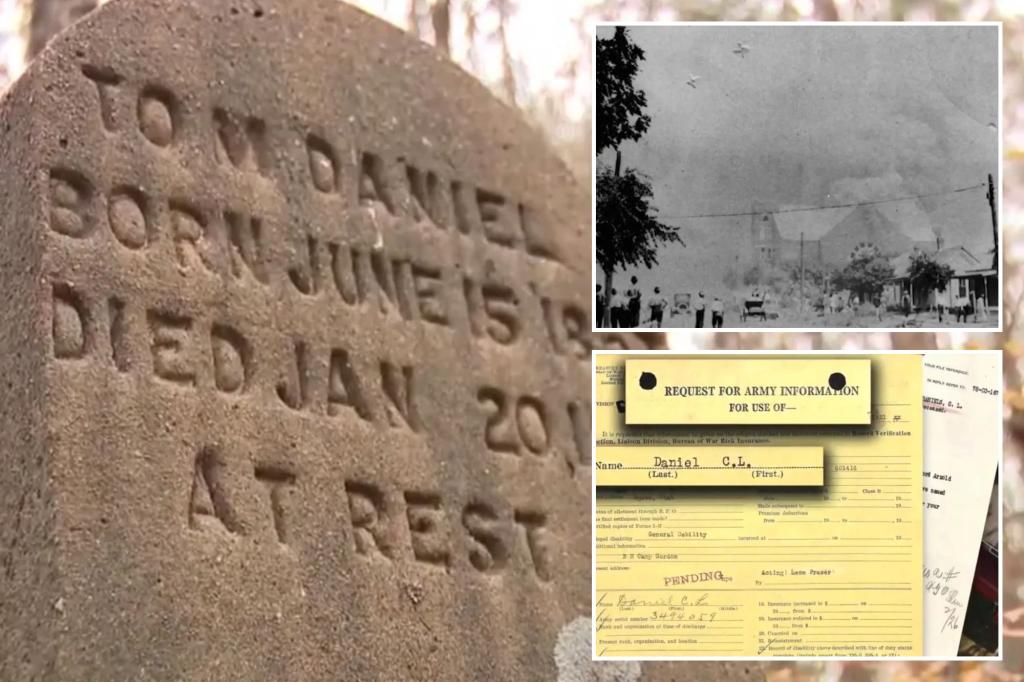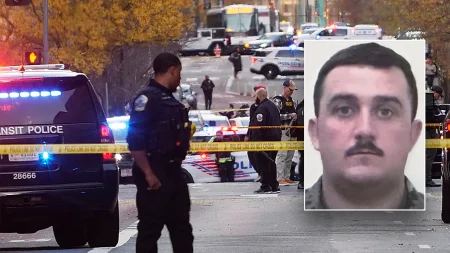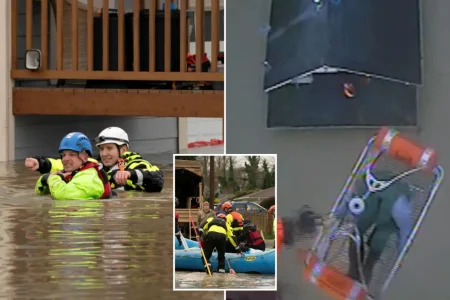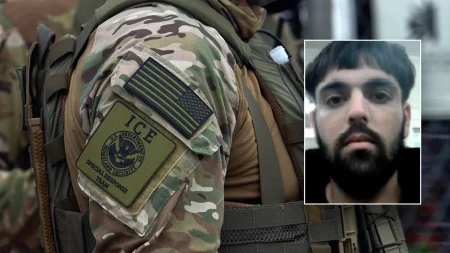The Tulsa Race Massacre of 1921, a horrific incident of racial violence, left an indelible scar on American history. The thriving Greenwood District, known as Black Wall Street, was decimated by a white mob, resulting in the deaths of hundreds of Black residents. For over a century, many victims remained unidentified, their stories lost to time. However, recent advancements in forensic science and genealogy have begun to shed light on these forgotten lives, bringing closure to descendants and offering a more complete understanding of the massacre’s devastating impact. One such story is that of C.L. Daniel, a World War I veteran whose remains were recently identified, connecting his descendants to a painful chapter in their family history.
C.L. Daniel, a young man from Newman, Georgia, was passing through Tulsa on his way home to his mother when the massacre erupted. Having served in World War I and receiving an honorable discharge after being injured, Daniel was seeking assistance from the Veterans Administration to facilitate his return home. He wrote letters expressing his desire to return to his mother, Amanda Meriweather, a widow with seven children, highlighting his concern for her well-being and her dependence on him. He left a forwarding address in Wyoming, indicating his intended destination before fate intervened in the form of the Tulsa Race Massacre. Tragically, his journey was cut short, and he became one of the many unnamed victims of the violence. His mother’s attempts to confirm his death and receive compensation for his military service went unanswered, leaving her with the agonizing uncertainty of her son’s fate.
The identification of C.L. Daniel’s remains is a testament to the dedication of forensic scientists and genealogists who have worked tirelessly to connect the dots between the past and the present. A forensic team embarked on a mission to identify the remains of the massacre victims, tracing their lineage through painstaking research and DNA analysis. Their efforts reached Angela Poythress, a resident of Newnan, Georgia, who received an unexpected email in August 2023 suggesting a potential connection to the Tulsa Race Massacre. The email mentioned her grandparents and parents, prompting her to investigate further. This initial contact opened a door to a family history previously unknown to her and other relatives.
The investigation gained momentum when Alex Whittler, a news anchor at FOX 5 Atlanta, joined the effort, facilitating connections between the forensic team and individuals who were willing to undergo DNA testing. The team focused on specific surnames, including Daniel, Meriweather, Bohannon, and Vaughn, in their search for potential matches. Andrew Poythress, who had previously taken a DNA test, emerged as a complete match with C.L. Daniel, solidifying the connection between the Poythress family and the unidentified victim. The search extended beyond Georgia, leading to the discovery of Stacy “Daniel” Brown in Florida. She, too, was found to be a match, confirming that she and the Poythresses were cousins, and that C.L. Daniel was their uncle. These DNA matches provided irrefutable evidence, finally confirming Daniel’s identity and bringing closure to his family after more than a century of uncertainty.
The identification of C.L. Daniel brought together descendants who were previously unaware of their shared ancestry, all tracing their lineage back to Amanda Meriweather. Learning about their uncle’s tragic fate and his connection to the Tulsa Race Massacre brought a mixture of sorrow and a sense of responsibility to honor his memory. Former Tulsa Mayor G.T. Bynum orchestrated a poignant ceremony in the fall to lay Daniel to rest, ensuring that the veteran received a proper burial after more than a century. He flew all of Daniel’s remaining descendants to Tulsa to participate in the ceremony, providing them with an opportunity to mourn their ancestor and connect with their family history. While Daniel was finally laid to rest, his descendants have embarked on another mission: to bring his remains to the cemetery where his parents are buried.
However, the cemetery where Daniel’s parents are interred has fallen into disrepair, with sunken headstones and overgrown vegetation. This has spurred the family to undertake a project to restore the cemetery, demonstrating their commitment to honoring their ancestors and ensuring that Daniel can finally rest alongside his parents. Andrew Poythress, looking at his great-grandparents’ neglected graves, vowed to rectify the situation, echoing the sentiment of the family to ensure a proper resting place for their newly identified relative. This undertaking represents not only a commitment to their family history but also a symbolic act of reclaiming their heritage and ensuring that the memory of C.L. Daniel and other victims of the Tulsa Race Massacre will not be forgotten.
The identification of C.L. Daniel is just one piece of the ongoing effort to identify the remaining victims of the Tulsa Race Massacre. The forensic team continues their work, expanding their search to families in Louisiana, Alabama, North Carolina, and Texas with connections to the surnames associated with the unidentified victims. Their dedication and the advancements in forensic science offer hope that more families will receive the closure they deserve and that the full story of the Tulsa Race Massacre will eventually be revealed, ensuring that the victims are remembered and their stories are preserved for future generations. The ongoing efforts serve as a powerful reminder of the importance of acknowledging the darkest chapters of history and the enduring impact of racial violence on individuals, families, and communities.









